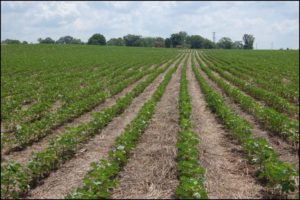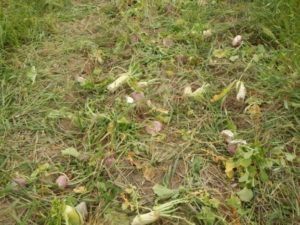By Erin Brooks, Natural Resources Conservation Service
It would have been hard to find any reference to soil health twenty years ago. Soil was conventionally treated as an inert growing medium. Today’s explosion of interest in soil health reflects a fundamental shift in soil science and a corresponding shift in the way we care for our nation’s soils. Soil is now recognized as a living ecosystem teeming with billions of bacteria, fungi, and other microbes that are the foundation of an elegant symbiotic ecosystem.
The complex soil ecosystem provides numerous benefits. These include:
1. Creating nutrients for plant growth,
2. Absorbing and holding rain for plant use during dry periods, and
3. Preventing soil and pollutants from leaving farm fields.
Healthy soil serves as a firm foundation for agricultural activities
Soil health is dynamic and changes in response to management practices. Management practices can affect the amount of organic matter in the soil, the presence of which is critical for soil ecosystem function. Management practices also affect soil structure, soil depth, and water and nutrient holding capacity. Soil health is improved when farmers mimic nature; when the myriad of creatures that comprise the soil food web are cared for and not abused. A fully functioning soil produces the maximum benefit at the least cost.
It is crucial to integrate and follow all soil health management principles for the soil to become and remain healthy.
5 Principles of Soil Health
- 1. Minimizing soil disturbance
2. Maximizing diversity of plants/crops
3. Keep living roots in the soil
4. Keep the soil covered with plants or residue at all times
5. Incorporate livestock
The Boise River Enhancement Plan recommends adoption of these agricultural best management practices to enhance water quality in the Boise River and its tributaries.


Bringing Our Soil Back to Life
You can learn more about soil health and agricultural best management practices at the 9th Annual Soil Health Symposium on February 15. Speakers include David Montgomery – University of Washington, Olga Walsh – University of Idaho, Shawn Nield – Idaho NRCS and Joel Packman – University of Idaho. The symposium will be held at the Four Rivers Cultural Center in Ontario, OR. Information and registration